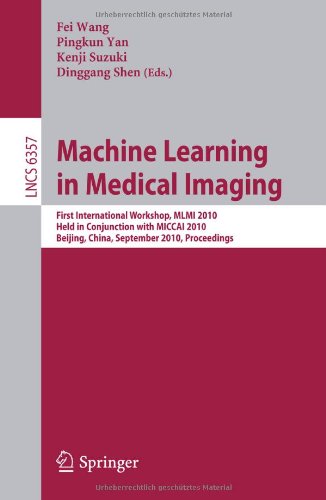

Most ebook files are in PDF format, so you can easily read them using various software such as Foxit Reader or directly on the Google Chrome browser.
Some ebook files are released by publishers in other formats such as .awz, .mobi, .epub, .fb2, etc. You may need to install specific software to read these formats on mobile/PC, such as Calibre.
Please read the tutorial at this link: https://ebookbell.com/faq
We offer FREE conversion to the popular formats you request; however, this may take some time. Therefore, right after payment, please email us, and we will try to provide the service as quickly as possible.
For some exceptional file formats or broken links (if any), please refrain from opening any disputes. Instead, email us first, and we will try to assist within a maximum of 6 hours.
EbookBell Team

5.0
78 reviewsThe first International Workshop on Machine Learning in Medical Imaging, MLMI 2010, was held at the China National Convention Center, Beijing, China on Sept- ber 20, 2010 in conjunction with the International Conference on Medical Image Computing and Computer Assisted Intervention (MICCAI) 2010. Machine learning plays an essential role in the medical imaging field, including image segmentation, image registration, computer-aided diagnosis, image fusion, ima- guided therapy, image annotation, and image database retrieval. With advances in me- cal imaging, new imaging modalities, and methodologies such as cone-beam/multi-slice CT, 3D Ultrasound, tomosynthesis, diffusion-weighted MRI, electrical impedance to- graphy, and diffuse optical tomography, new machine-learning algorithms/applications are demanded in the medical imaging field. Single-sample evidence provided by the patient’s imaging data is often not sufficient to provide satisfactory performance; the- fore tasks in medical imaging require learning from examples to simulate a physician’s prior knowledge of the data. The MLMI 2010 is the first workshop on this topic. The workshop focuses on major trends and challenges in this area, and works to identify new techniques and their use in medical imaging. Our goal is to help advance the scientific research within the broad field of medical imaging and machine learning. The range and level of submission for this year's meeting was of very high quality. Authors were asked to submit full-length papers for review. A total of 38 papers were submitted to the workshop in response to the call for papers.